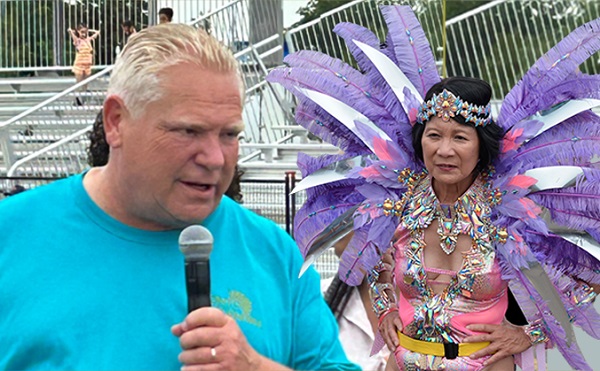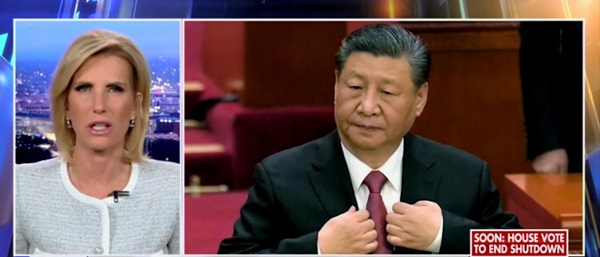Opinion
NDP and Greens formed government in B.C. The Alberta Liberals and the Alberta Party will merge? For 2019 election all four parties should merge in Alberta.

The 30th general election of Alberta, Canada, will elect members to the Legislative Assembly of Alberta. It will take place on or before May 31, 2019.
We currently have the Alberta New Democratic Party in government. They went from being an opposing party with the Liberals and the Wildrose parties against the ruling conservative dynasty to forming government in 2015. What do we know?
From wikipedia;
The Alberta New Democratic Party or Alberta NDP is a social-democratic political party in Alberta, Canada, which succeeded the Alberta section of the Co-operative Commonwealth Federation and the even earlier Alberta wing of the Canadian Labour Party and the United Farmers of Alberta. From the mid-1980s to 2004, the party abbreviated its name as the “New Democrats” (ND).
The party achieved Official Opposition status in the Legislative Assembly of Alberta from 1986 to 1993. It was swept out of the legislature in 1993 and spent the next two decades in the political wilderness. While it managed to get back into the legislature in 1997, it never won more than four seats. Its time on the fringe of Alberta politics ended in the 2015 provincial election, when it won 54 of the 87 seats in the legislature to form the government of Alberta for the first time. Until 2015, Alberta had been the only province in western Canada—the party’s birthplace—where the NDP had never governed at the provincial level.
Not a lot there, and little about mission and visions on their website. The election is in 19 months so we may learn more about their plans for the future. The Calgary Herald has a poll that shows that if the election was held today, the United Conservative Party would handily win.
How does a former fringe party which campaigns on the left and centre combat the right wing remnants of the former conservative dynasty? Here’s an idea, unite the left and centre parties.
In British Columbia the NDP and the Greens have a union in government. The Alberta Party and the Alberta Liberal Party are almost a union in almost every way except by formality. Why not merge?
Let us look at the Alberta Party, the Alberta Liberal Party and the Alberta Green Party, their missions and see if there is any common ground. I think there is but it is up to politicians to decide to work together or go their separate ways.
Starting with the Alberta Party;
From Wikipedia:
The Alberta Party, formally the Alberta Party Political Association, is a political party in the province of Alberta, Canada. The party describes itself as a centrist and pragmatic party that is not dogmatically ideological in its approach to politics.
For most of its history the Alberta Party was a right-wing organization, until the rise of the Wildrose Alliance as Alberta’s main conservative alternative to the governing Progressive Conservatives attracted away the Alberta Party’s more conservative members. This left a small rump of more left-wing members in control of the Alberta Party. In 2010 the Alberta Party board voted to merge with Renew Alberta, a progressive group that had been organizing to form a new political party in Alberta. The Alberta Party thus shed its conservative past for a more centrist political outlook. The party has been cited in The Globe and Mail and The Economist as part of the break in one-party politics in Alberta.
From The Alberta Party website;
Vision;
We will form a government committed to diversity, integrity, transparency and collaboration. As leaders of positive change, we value inclusiveness, ideas over ideologies, and champion economic, environmental and social responsibility.
Mission
We will:
Model responsible and ethical government.
Generate and implement practical, constructive solutions through listening, citizen engagement, evidence-based policy and building common ground.
Tackle tough issues facing Albertans by examining root causes and maintaining a long-term view of prosperity and sustainability.
Act as guardians of the public interest.
Conduct ourselves in an open, transparent and accountable manner.
Steadfastly refuse to engage in short-sighted, politically motivated, partisan politics.
Provide economic, environmental and social leadership in order to benefit Alberta, Canada and the world.
The Alberta Party is committed to building a policy framework that is based on the following six key values:
1) Prosperity
We believe that private enterprise and entrepreneurship are the keys to our economic success. The government should foster an environment which facilitates economic investment, reduces red tape and encourages creativity.
2) Fiscal Responsibility
We believe that government must use public dollars as effectively and efficiently as possible. The government should balance the books and set aside money for a rainy day. This is best accomplished through long-term planning, common sense and transparency.
3) Social Responsibility
We believe every Albertan deserves the opportunity to succeed. Our government should aspire to provide excellent and innovative public education, public health care, and infrastructure, as well as a compassionate helping hand in times of need. We believe this can be accomplished through responsible use of public funds.
4) Sustainability
We believe that sustainability must be a core value of government. Rethinking unsustainable practices, making strategic investments in research and technology, and implementing smart policy choices will protect and enhance our environment for future generations.
5) Democracy
We believe that public business should be conducted in public. Government should ensure that the legislative process is open, fair, transparent and inclusive of the people it governs. Our government should foster debate, actively engage citizens, and make itself accountable to the people it serves.
6) Quality of life
We believe that a great quality of life requires strong communities. Through support of recreation, sports, arts and culture, government can help to build strong and vibrant communities.
Let us look at the Alberta Liberal Party;
From Wikipedia;
The Alberta Liberal Party is a provincial political party in Alberta, Canada. Founded in 1905, it was the dominant political party until the 1921 election, with the first three provincial Premiers being Liberals. Since 1921, it has formed the official opposition in the Legislative Assembly of Alberta several times, most recently from 1993 until 2012.
From the Alberta Liberal Party website;
The Alberta Liberal Party has been working for Albertans since 1905 and we believe that we must champion our strong values in government. We are fiscally-prudent, a party that proudly supports socially progressive change, and that cares deeply about our stewardship of the environment. We believe that it is our duty to run effective and efficient governments, that respects the autonomy of the individual, and that safeguards the environment. This way we build both a strong society and a vibrant economy.
1) Equal Opportunity
Liberals oppose both privilege and prejudice. Everyone should have as equal as possible an opportunity to participate in society, enjoying equal rights and freedoms, and sharing responsibilities.
2) Free Enterprise
Alberta Liberals have faith in the free enterprise system. Through it, the widest number of opportunities are provided, the greatest number of needs are satisfied, and initiative is most rewarded. Nevertheless, the market system is not perfect. The government has a role to play in preventing exploitation, protecting consumers and preserving the environment. Government also has a role to play in facilitating economic development and competition, and serving public needs which the private sector cannot or will not meet.
3) Fiscal Responsibility
Alberta Liberals believe that government has an obligation to manage the affairs of the province in a prudent and responsible manner. Wasteful spending threatens essential government programs such as health care and education for today’s constituents, and fairness dictates that future generations not be burdened with our debts.
4) Environmental Responsibility
Alberta Liberals believe that the protection of the environment is essential to the longterm health of our planet and ourselves, and to our quality of life. Environmental policy must look beyond a traditional view of economics to reflect the cultural and spiritual importance of the environment in our lives. Responsible policy-makers must consider the environment a sacred trust.
5) Change
Liberals have always been reformers. We seek to improve the system as we search for ways of improving the human condition. We are not afraid to initiate change. Without compromising our principles, our search for solutions is driven not by rigid ideology but by the question, “What is best?”
Thirdly let us look at the Green Party of Canada;
From Wikipedia;
The Green Party of Alberta is a registered political party in Alberta, Canada, that is allied with the Green Party of Canada, and the other provincial Green parties. The party was registered by Elections Alberta on December 22, 2011, to replace the deregistered Alberta Greens, and ran its first candidates for office in the 2012 provincial election under the name Evergreen Party of Alberta. The party changed its name to “Green Party of Alberta” on November 1, 2012.
From Green Party of Alberta website;
Mission
To participate in Alberta electoral politics with the aim of having such a provincial government come to power;
To educate Albertans as to the need for a government committed to Green principles
The Green Party of Alberta is committed to the 6 principles of the world-wide Green Party movement:
1) Ecological wisdom
Human beings are part of the natural world and we respect the specific value of all forms of life.
2)Non-violence
We are committed to non-violence and cooperation between states, inside societies and between individuals
3) Participatory democracy
In a healthy democracy all citizens have the right to express their views and are able to directly participate in the environmental, economic, social and political decisions which affect their lives
4) Respect for diversity
We honour all forms of diversity – for example, racial, linguistic, ethnic, sexual, religious and spiritual – within the context of individual responsibility toward all beings.
5) Social justice
We honour all forms of diversity – for example, racial, linguistic, ethnic, sexual, religious and spiritual – within the context of individual responsibility toward all beings.
6) Sustainability
We recognize the limited scope for the material expansion of society within the biosphere and the need to maintain biodiversity through the sustainable use of renewable resources.
Each of the party has differences in goals and priorities but they have enough similarities. Is it enough to form a coalition or corroborative government? Can they step away from egos and work together to offer an option to the United Conservative Party? Will we be sliding into another 40 year conservative dynasty? We will find out in May 2019.
Bruce Dowbiggin
DEI Or Die: Out With Remembrance, In With Replacement

“Thank you to those so often forgotten by the politics of our city who made this movement their own. I speak of Yemeni Bodega owners and Mexican abuelas, Senegalese taxi drivers and Uzbek nurses, Trinidadian line cooks and Ethiopian aunties”.- new NYC mayor Zohran Mamdami
The new mayor’s effusive tribute to immigrants is very on-brand for the Woke Left. Coming as it did on the week where Canadians’ remembered the sacrifice of the over one hundred thousand who “died to make the world free” in WWI, WWII and Korea— even as their homes are squeezed between hereditary land rights and Justin Trudeau’s holiday camp.
For Boomers that battle sacrifice has underpinned their lifestyle for most of the past 75 years or so. No matter how cynical or hipster the Boomer, the phrase “They died to make the world free” was the Gorilla Glue holding Western civilizations together. Whether you agreed or not, you acknowledged its pre-eminence in society.
Those who annually recall family members who’d made the ultimate sacrifice underscore that “they died to make the world free” is foundational in their national myth making. For example, our younger son placed roses on my uncle’s grave in the Commonwealth war cemetery near Hanover, Germany. He then delivered the petals to his grandmother to acknowledge the loss of her brother.

These rituals of sacrifice were everywhere till the early decades of the twenty-first century when the demographics of declining birth rates in the West combined with aggressive immigration— both sanctioned and illegal— to create the Beirut described by mayor Mandami upon election. He was talking about NYC, but it could have been Toronto, Montreal or Vancouver. But you are free to ask what freedom means in this context.
North America in particular has long encouraged immigration. It was typically combined with assimilation in the doctrines used by governments of the day. People from around the globe arrived in the West and aspired to the cultural and financial modes they discovered. For one young Ukrainian boy we knew the figure of Frank Mahovlich, son of Croatian immigrants, on the Toronto Maple Leafs was proof that he could belong in his new society.
But somewhere along the way the suicidal empathy of progressives— combined with a need for low-income workers for corporations— loosened the expectations for those arriving in the West. In Canada, prime minster Justin Trudeau adopted Yan Martel’s diversity model of Canada as a travellers’ hotel. No longer would newcomers need to assimilate.
They could live side-by-side with ancestors of original inhabitants while still recreating their former homelands. In time the bureaucracy— and revenge of the cradle— would replace the cranky white people with a more malleable electorate. It was Replacement Theory.
The Canadian boys going over the top at Vimy or taking off in their Lancaster bombers would never have foreseen this as they risked their lives. They couldn’t countenance the people they’d fought for throwing away their sacrifice on a pandering scheme like DEI (diversity, equality, inclusion) which replaced merit with settler guilt in hiring decisions.
When government admonitions to accept their societal revolution failed to produce enough newcomer guilt, social media filled the gap. Remember the drowned Syrian boy on the beach in 2015? The uproar about Canada’s immigration policies helped unseat Steven Harper and install a trust-fund puppet in the PMO. And it opened the floodgates that sent Canada from 35 million to 42.5 population in a decade.
As Mark Steyn observes, “Winston Churchill said we shall fight them on the beaches; his grandson Rupert Soames set up the highly lucrative business model whereby we welcome them on the beaches …and then usher them to taxpayer-funded four-star hotels with three meals a day and complimentary cellphone. That’s the story of the post-war west in three generations of one family.”
Recent reports show that many top American corporations are moving away from DEI back to merit-based hiring. But Canada’s government, led by its Woke academic and culture sectors, remains stubbornly fixed on the DEI model. That obsession keeps the corporate side from emulating their American counterparts.
The tell that DEI is far from dead can be seen in how the advertising world has doubled down on the orthodoxy of majority male whites bad/ everyone else good. In what is clearly a political, not profitable approach, minorities, mixed-race couples and women are featured in commercials in numbers far disproportionate to their percentage of the population.
A blend of LGBTQ and Rousseau’s The Noble Savage has produced The Church Lady come to the 2020s. Upper-class blacks are portrayed as authority figures while white males are hillbilly figures of ridicule. This is not to placate those communities but to assuage the guilt felt by educated white liberals.
Mixed-race commercials now mandate that virtually no same-race figures be allowed to be paired on-camera. (Having the ironic effect of white liberals telling the minorities they worship that they are not worthwhile unless in combination with the evil settler demographic.)

It’s the same in movies and TV which used to complain about cultural appropriation but now suddenly place racial and gender-inappropriate actors in period roles that are clearly specific to whites and males. For example, Netflix’s new series Death by Lightning is set in Chicago, 1880 – and this foreground establishing scene pops up.:
•an Asian woman,
•two Black men,
•and a one-legged man
-
all walking together. @StutteringCraig estimates the odds of this DEI dream at roughly 1 in 640,000. No matter. Authenticity is so yesterday.
The DEI obsession has pilled over into traditional Remembrance Day ceremonies that were marred by land acknowledgements and slavery references (slavery was banned in Canada 45 years before it became a nation.) Which led to CBC running a story on the Palestinian flag being raised at Toronto city hall on Remembrance Day.
In B.C. premier David Eby has declared that Canada now needs a power-sharing with the Cowichan and their confederates. American politics is also loath to give up their DEI dogma. In one real-life example leftist radio host Stephanie Miller kissed the feet of unhinged Democrat Rep. Jasmine Crockett. “Why, yes I DID kiss the sneakers of @JasmineForUS and I DO worship the ground she walks on! And she was LOVELY about it!” The laces fetishists think this performative theatre will always be thus. It won’t.

“The Venetian Republic lasted 1,100 years – and ninety-nine per cent of North Americans have never heard of it. But, on present demographic and fiscal trends, that’s four times longer than the United States is likely to make it,” Steyn observes.
“Walk around New York: The Yemeni-Mexican-Senegalese-Uzbek-Trinidadian-Ethiopians are the future. And you’re not.”
Bruce Dowbiggin @dowbboy is the editor of Not The Public Broadcaster A two-time winner of the Gemini Award as Canada’s top television sports broadcaster, his new book Deal With It: The Trades That Stunned The NHL And Changed hockey is now available on Amazon. Inexact Science: The Six Most Compelling Draft Years In NHL History, his previous book with his son Evan, was voted the seventh-best professional hockey book of all time by bookauthority.org . His 2004 book Money Players was voted sixth best on the same list, and is available via brucedowbigginbooks.ca.
Censorship Industrial Complex
EU’s “Democracy Shield” Centralizes Control Over Online Speech

Presented as a defense of democracy, the plan reads more like the architecture of a managed reality.
|
European authorities have finally unveiled the “European Democracy Shield,” we’ve been warning about for some time, a major initiative that consolidates and broadens existing programs of the European Commission to monitor and restrict digital information flows.
Though branded as a safeguard against “foreign information manipulation and interference (FIMI)” and “disinformation,” the initiative effectively gives EU institutions unprecedented authority over the online public sphere.
At its core, the framework fuses a variety of mechanisms into a single structure, from AI-driven content detection and regulation of social media influencers to a state-endorsed web of “fact-checkers.”
The presentation speaks of defending democracy, yet the design reveals a machinery oriented toward centralized control of speech, identity, and data.
One of the more alarming integrations links the EU’s Digital Identity program with content filtering and labelling systems.
The Commission has announced plans to “explore possible further measures with the Code’s signatories,” including “detection and labelling of AI-generated and manipulated content circulating on social media services” and “voluntary user-verification tools.”
Officials describe the EU Digital Identity (EUDI) Wallet as a means for “secure identification and authentication.”
In real terms, tying verified identity to online activity risks normalizing surveillance and making anonymity in expression a thing of the past.
The Democracy Shield also includes the creation of a “European Centre for Democratic Resilience,” led by Justice Commissioner Michael McGrath.
Framed as a voluntary coordination hub, its mission is “building capacities to withstand foreign information manipulation and interference (FIMI) and disinformation,” involving EU institutions, Member States, and “neighboring countries and like-minded partners.”
The Centre’s “Stakeholder Platform” is to unite “trusted stakeholders such as civil society organizations, researchers and academia, fact-checkers and media providers.”
In practice, this structure ties policymaking, activism, and media oversight into one cooperative network, eroding the boundaries between government power and public discourse.
Financial incentives reinforce the system. A “European Network of Fact-Checkers” will be funded through EU channels, positioned as independent yet operating within the same institutional framework that sets the rules.
The network will coordinate “fact-checking” in every EU language, maintain a central database of verdicts, and introduce “a protection scheme for fact-checkers in the EU against threats and harassment.”
Such an arrangement destroys the line between independent verification and state-aligned narrative enforcement.
The Commission will also fund a “common research support framework,” giving select researchers privileged access to non-public platform data via the
Digital Services Act (DSA) and Political Advertising Regulation.
Officially, this aims to aid academic research, but it could also allow state-linked analysts to map, classify, and suppress online viewpoints deemed undesirable.
Plans extend further into media law. The European Commission intends to revisit the Audiovisual Media Services Directive (AVMSD) to ensure “viewers – particularly younger ones – are adequately protected when they consume audiovisual content online.”
While framed around youth protection, such language opens the door to broad filtering and regulation of online media.
Another initiative seeks to enlist digital personalities through a “voluntary network of influencers to raise awareness about relevant EU rules, including the DSA.” Brussels will “consider the role of influencers” during its upcoming AVMSD review.
Though presented as transparent outreach, the move effectively turns social media figures into de facto promoters of official EU messaging, reshaping public conversation under the guise of awareness.
The Shield also introduces a “Digital Services Act incidents and crisis protocol” between the EU and signatories of the Code of Practice on Disinformation to “facilitate coordination among relevant authorities and ensure swift reactions to large-scale and potentially transnational information operations.”
This could enable coordinated suppression of narratives across borders. Large platforms exceeding 45 million EU users face compliance audits, with penalties reaching 6% of global revenue or even platform bans, making voluntary cooperation more symbolic than real.
A further layer comes with the forthcoming “Blueprint for countering FIMI and disinformation,” offering governments standardized guidance to “anticipate, detect and respond” to perceived information threats. Such protocols risk transforming free expression into a regulated domain managed under preemptive suspicion.
Existing structures are being fortified, too. The European Digital Media Observatory (EDMO), already central to “disinformation” monitoring, will receive expanded authority for election and crisis surveillance. This effectively deepens the fusion of state oversight and online communication control.
Funding through the “Media Resilience Programme” will channel EU resources to preferred outlets, while regulators examine ways to “strengthen the prominence of media services of general interest.”
This includes “impact investments in the news media sector” and efforts to build transnational platforms promoting mainstream narratives. Though described as supporting “independent and local journalism,” the model risks reinforcing state-aligned voices while sidelining dissenting ones.
Education and culture are not exempt. The Commission plans “Guidelines for teachers and educators on tackling disinformation and promoting digital literacy through education and training,” along with new “media literacy” programs and an “independent network for media literacy.”
While such initiatives appear benign, they often operate on the assumption that government-approved information is inherently trustworthy, conditioning future generations to equate official consensus with truth.
Viewed as a whole, the European Democracy Shield represents a major institutional step toward centralized narrative management in the European Union.
Under the language of “protection,” Brussels is constructing a comprehensive apparatus for monitoring and shaping the flow of information.
For a continent that once defined itself through open debate and free thought, this growing web of bureaucratic control signals a troubling shift.
Efforts framed as defense against disinformation now risk becoming tools for suppressing dissent, a paradox that may leave European democracy less free in the name of making it “safe.”
|
|
|
|
You read Reclaim The Net because you believe in something deeper than headlines; you believe in the enduring values of free speech, individual liberty, and the right to privacy.
Every issue we publish is part of a larger fight: preserving the principles that built this country and protecting them from erosion in the digital age.
With your help, we can do more than simply hold the line: we can push back. We can shine a light on censorship, expose growing surveillance overreach, and give a voice to those being silenced.
If you’ve found any value in our work, please consider becoming a supporter.
Your support helps us expand our reach, educate more people, and continue this work.
Please become a supporter today.
Thank you for your support.
|
-

 Frontier Centre for Public Policy1 day ago
Frontier Centre for Public Policy1 day agoRichmond Mayor Warns Property Owners That The Cowichan Case Puts Their Titles At Risk
-

 armed forces2 days ago
armed forces2 days agoCanadian veteran says she knows at least 20 service members who were offered euthanasia
-

 Business2 days ago
Business2 days agoCarney shrugs off debt problem with more borrowing
-

 Automotive2 days ago
Automotive2 days agoThe high price of green virtue
-

 Bruce Dowbiggin2 days ago
Bruce Dowbiggin2 days agoMaintenance Mania: Since When Did Pro Athletes Get So Fragile?
-

 National2 days ago
National2 days agoConservative bill would increase penalties for attacks on places of worship in Canada
-

 Daily Caller1 day ago
Daily Caller1 day agoLaura Ingraham’s Viral Clash With Trump Prompts Her To Tell Real Reasons China Sends Students To US
-

 Business1 day ago
Business1 day agoSluggish homebuilding will have far-reaching effects on Canada’s economy










